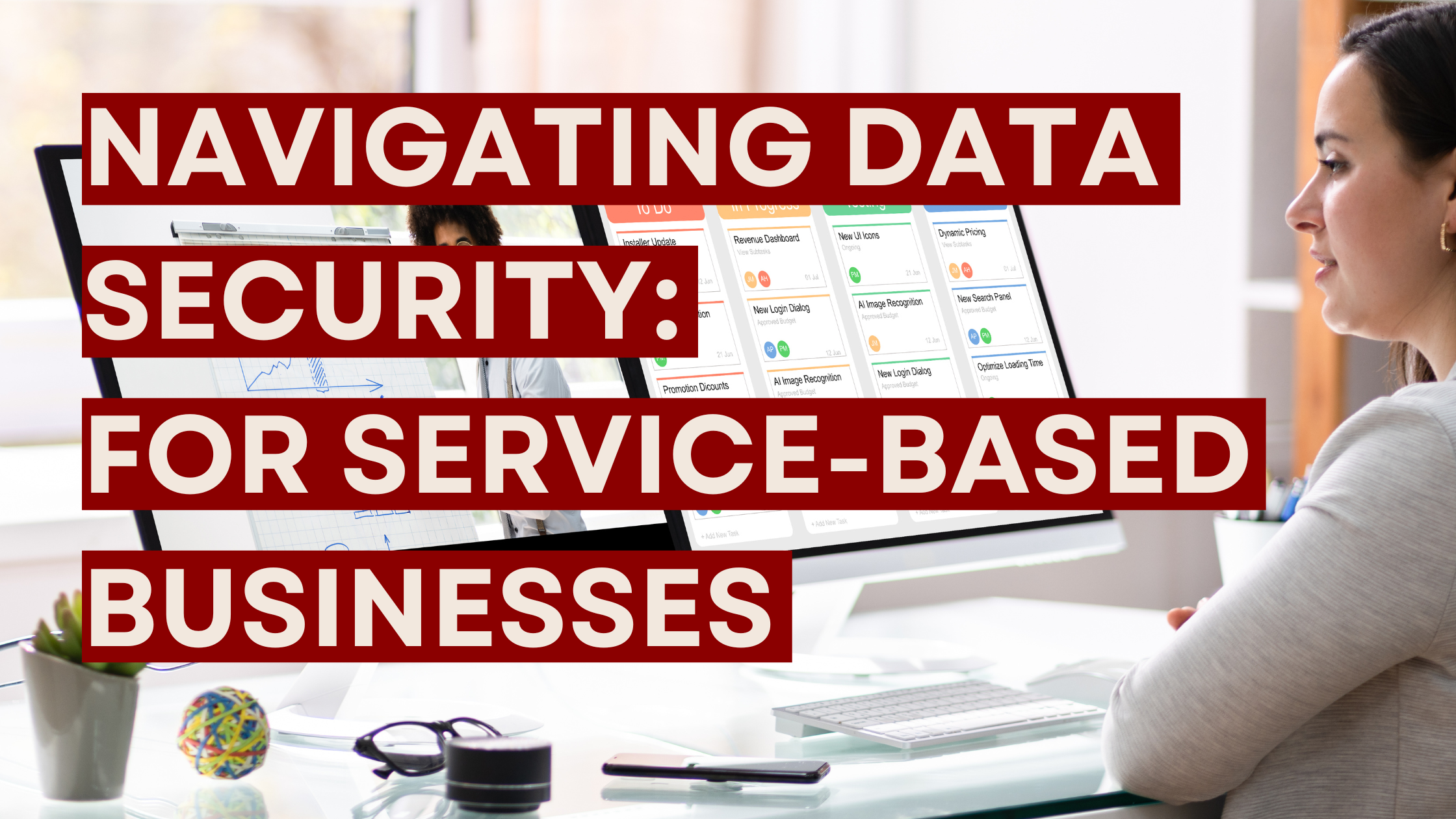Navigating Data Security: A Comprehensive Approach for Service-Based Businesses
As service-based businesses increasingly operate in the digital sphere, the significance of robust data security cannot be overstated.
In this guide, we will explore practical tips and strategies to optimize processes, automate tasks, and enhance overall efficiency in your service-based business.
In this comprehensive guide, we will dive into the crucial aspects of data security, emphasizing its paramount importance for service industries. Whether you're a freelance consultant or managing a full-scale service agency, understanding and implementing a thorough approach to data security is essential for both the protection of your clients and the sustainability of your business.
1. The Imperative of Data Security in Service Industries
In an era where data breaches make headlines and privacy concerns are at an all-time high, service-based businesses must prioritize data security as a non-negotiable aspect of their operations. Whether handling financial transactions, client communications, or project details, the potential impact of a security breach can be catastrophic. Not only can it lead to financial losses, but it can irreversibly damage the trust your clients place in your services.
2. Understanding the Risks and Vulnerabilities
Before fortifying your data security measures, it's essential to comprehend the specific risks and vulnerabilities inherent in service industries. This may include client data exposure, unauthorized access to confidential information, and potential legal ramifications in the case of a breach. Conduct a thorough risk assessment to identify weak points in your current security infrastructure and tailor your approach accordingly.
3. Implementing Secure Practices
Encryption is Key: Encrypting sensitive data both in transit and at rest is fundamental. Utilize robust encryption algorithms to protect client information, financial data, and any other sensitive records. This ensures that even if unauthorized access occurs, the data remains unintelligible.
Access Control and Authentication: Limit access to sensitive information only to those who require it for their roles. Implement multi-factor authentication to add an extra layer of security, reducing the risk of unauthorized access.
Regular Data Backups: Enact a robust data backup strategy. Regular backups ensure that even in the event of a security breach, you can recover essential information. Store backups securely, preferably in an offsite location.
Security Training for Staff: Human error is a significant contributor to security breaches. Provide comprehensive security training to your team, educating them on the importance of secure practices, recognizing phishing attempts, and adhering to data protection policies.
4. Compliance with Data Protection Regulations
GDPR (General Data Protection Regulation): If your service-based business operates in or deals with clients from the European Union, compliance with GDPR is mandatory. Familiarize yourself with the regulation's requirements regarding data processing, consent, and the rights of data subjects.
HIPAA (Health Insurance Portability and Accountability Act): For businesses involved in healthcare services, adhering to HIPAA regulations is critical. Ensure that your data security measures align with the specific requirements outlined in HIPAA to protect sensitive health information.
Other Local Regulations: Be aware of and compliant with data protection regulations specific to your location and industry. These may include CCPA (California Consumer Privacy Act) or industry-specific standards.
5. Securing Client Information
Transparent Data Handling Practices: Clearly communicate to clients how their data will be handled, stored, and used. Establishing transparency builds trust and ensures that clients are aware of the security measures in place to protect their information.
Regular Security Audits: Conduct regular security audits to identify vulnerabilities and ensure that your data protection measures are up to date. This proactive approach is vital in a constantly evolving digital landscape.
Data Minimization: Only collect and retain the information that is absolutely necessary for your business operations. Minimizing data reduces the potential impact of a breach and lessens the regulatory burden on your business.
6. Incident Response and Crisis Management
Despite all preventive measures, it's crucial to have a well-defined incident response plan in case of a security breach. This plan should include:
Immediate Response Protocols: Clearly outline the steps to be taken as soon as a security incident is detected. This could involve isolating affected systems, notifying relevant parties, and initiating an investigation.
Communication Plan: Have a communication plan in place for informing clients and stakeholders about the breach. Transparency is key in mitigating reputational damage.
Post-Incident Evaluation: Conduct a thorough post-incident evaluation to understand the root cause of the breach and identify areas for improvement. This continuous learning process strengthens your data security posture.
In the competitive landscape of online services, trust is the currency that drives business success. A comprehensive approach to data security not only safeguards your clients' sensitive information but also solidifies your reputation as a reliable service provider. By understanding the risks, implementing secure practices, complying with regulations, and being prepared for potential incidents, service-based businesses can navigate the complex terrain of data security with confidence. As the digital landscape evolves, an unwavering commitment to data security is not just a best practice; it's a fundamental requirement for the longevity and success of your online service business.

